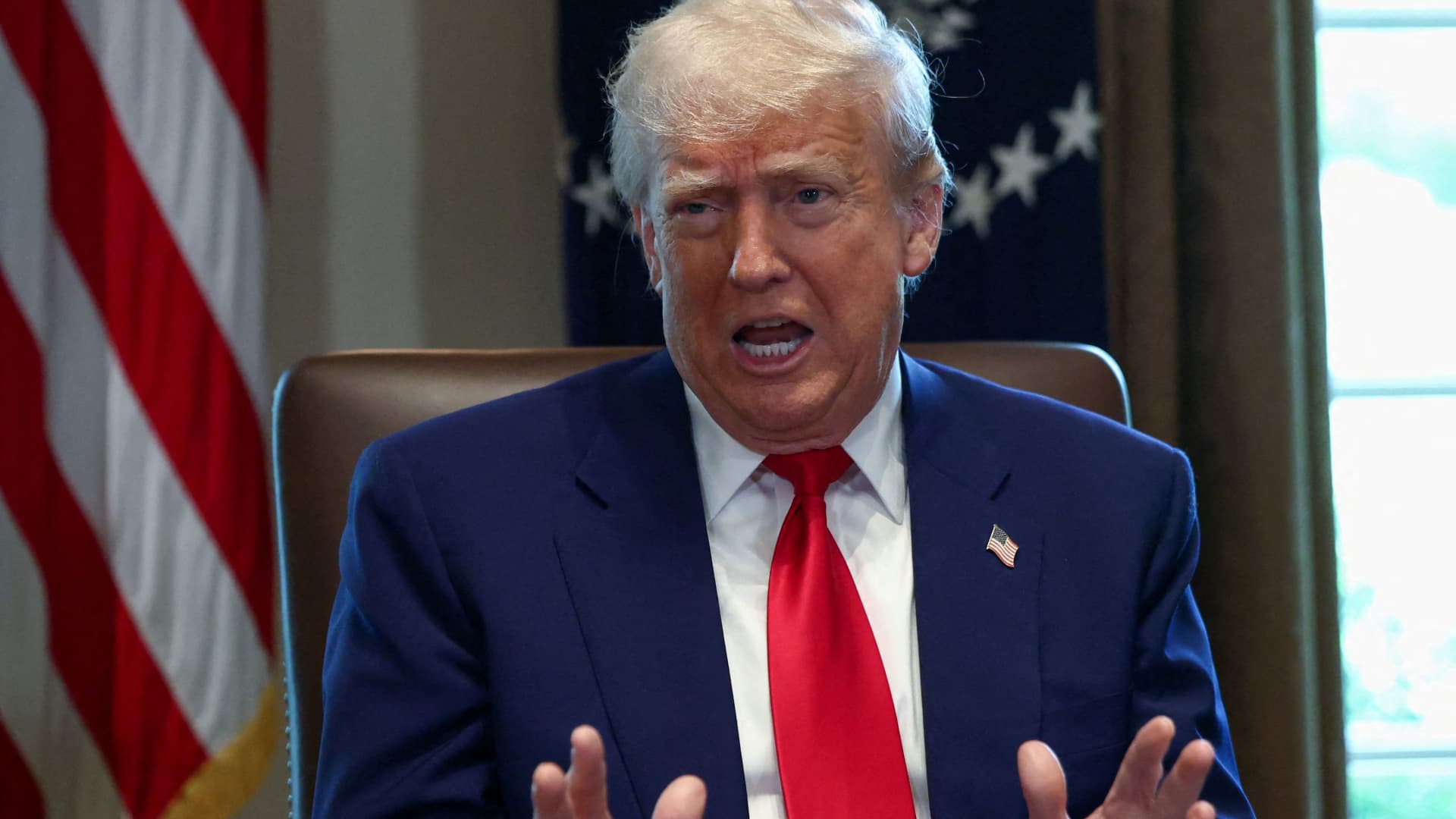The Escalating Conflict: Trump’s Threat to Revoke Harvard’s Tax-Exempt Status
The recent announcement by President Donald Trump to revoke Harvard University’s tax-exempt status has ignited a firestorm of debate and raised critical questions about the legal and political ramifications. This bold move, communicated through a succinct post on Truth Social, signifies a significant escalation in the ongoing feud between the Trump administration and one of the world’s most venerable educational institutions. The following analysis explores the backdrop, legal considerations, and potential impacts of this contentious decision.
Background of the Conflict
The simmering tension between the Trump administration and Harvard University has been brewing for some time. In mid-April, the administration froze $2.2 billion in grants to Harvard, prompting the university to file a lawsuit in retaliation. This legal skirmish has been fueled by a series of demands from the White House, which Harvard has steadfastly rejected, labeling them as illegal and overreaching. The administration’s latest maneuver to revoke Harvard’s tax-exempt status is widely viewed as a retaliatory strike aimed at applying further pressure on the university.
The roots of this conflict run deep, stemming from ideological differences and a clash of principles. Harvard, with its storied history and commitment to academic freedom, has long been a bastion of independent thought and research. The Trump administration, on the other hand, has been known for its assertive approach to governance, often seeking to exert control over institutions that it perceives as resistant to its policies. This clash of ideologies has set the stage for a high-stakes confrontation that has captured national attention.
Legal Considerations
The legal terrain surrounding the revocation of Harvard’s tax-exempt status is intricate and fraught with challenges. Federal law explicitly prohibits the president from directing the Internal Revenue Service (IRS) to conduct specific investigations or audits. This legal constraint poses a substantial obstacle for Trump’s threat, as any attempt to instruct the IRS to revoke Harvard’s status would likely be seen as a violation of this law. Moreover, the IRS operates with its own set of procedures and criteria for determining tax-exempt status, which are independent of presidential directives.
The Trump administration has formally requested the IRS to consider revoking Harvard’s tax-exempt status. However, the IRS must adhere to its established protocols and guidelines. The IRS would need to undertake a meticulous review and present evidence that Harvard has violated the terms of its tax-exempt status. This process is far from straightforward and could take a considerable amount of time, during which Harvard would have ample opportunity to defend its position. The legal battle could potentially drag on for years, involving multiple layers of appeals and judicial reviews.
Political Implications
The political ramifications of Trump’s threat are substantial. By targeting Harvard, the administration is sending a clear and unambiguous message to other educational institutions and nonprofits that defy its demands. This move is part of a broader strategy to assert control over institutions that the administration views as resistant to its policies. The conflict with Harvard is not merely about federal funding or tax status; it is a battle over autonomy, academic freedom, and the role of higher education in society.
Harvard’s response to the threat has been resolute and defiant, with the university filing lawsuits and rejecting the administration’s demands. This stance has garnered support from a diverse array of quarters, including other academic institutions, legal experts, and political figures. The conflict has also shone a spotlight on the broader issues of government overreach and the protection of institutional independence. The political landscape is fraught with tension, as both sides dig in their heels, prepared for a protracted and contentious battle.
Potential Impacts
If the IRS were to revoke Harvard’s tax-exempt status, the repercussions would be extensive and far-reaching. Harvard, as a 501(c)(3) organization, enjoys substantial tax benefits that enable it to operate more efficiently and invest in its educational and research programs. The loss of tax-exempt status would mean that Harvard would have to pay taxes on its income, which could significantly impact its financial stability and operations. This financial burden could force the university to make difficult decisions, potentially leading to cuts in programs, reduced financial aid, and other austerity measures.
Moreover, the revocation of tax-exempt status could set a dangerous precedent for other institutions, potentially leading to a wave of similar actions against universities and nonprofits that challenge government policies. This could have a chilling effect on academic freedom and the independence of educational institutions, making them more vulnerable to political pressure and interference. The potential ripple effects of this decision could reshape the landscape of higher education, altering the dynamics of academic freedom and institutional autonomy.
A Battle for Independence
The Trump administration’s threat to revoke Harvard’s tax-exempt status is a bold and controversial move that underscores the deepening conflict between the government and one of the nation’s most storied institutions. While the legal hurdles are significant, the political and symbolic implications are even more profound. This battle is not just about taxes or funding; it is a struggle for the independence and autonomy of higher education in the face of government overreach. As the conflict unfolds, the outcome will have far-reaching consequences for academic freedom, institutional independence, and the role of education in society. The stakes are high, and the world is watching to see how this dramatic confrontation plays out. The resolution of this conflict will not only determine the future of Harvard but also set a precedent for how educational institutions navigate the complex interplay between government policies and academic autonomy.








